The system is processing. Please wait a moment!
- Home experience homelift & elevator technical Sharing experiences
Elevator Inspection and 5 Important Notes
TABLE OF CONTENTS
- Why must the elevator be inspected?
- Regulations on elevator inspection
- Elevator inspection form
- The period of periodic elevator inspection depends on the period of elevator use
- Update current elevator inspection prices
- Cases requiring elevator technical safety inspection
- Elevator inspection process
- Important notes when inspecting elevators
In the management and use of elevators, especially in buildings, performing elevator inspection plays an important role, not only to ensure safety and compliance with legal regulations but also as a decisive factor. determines the reputation and image of an organization or business. Furthermore, it helps reduce the risks and costs involved.
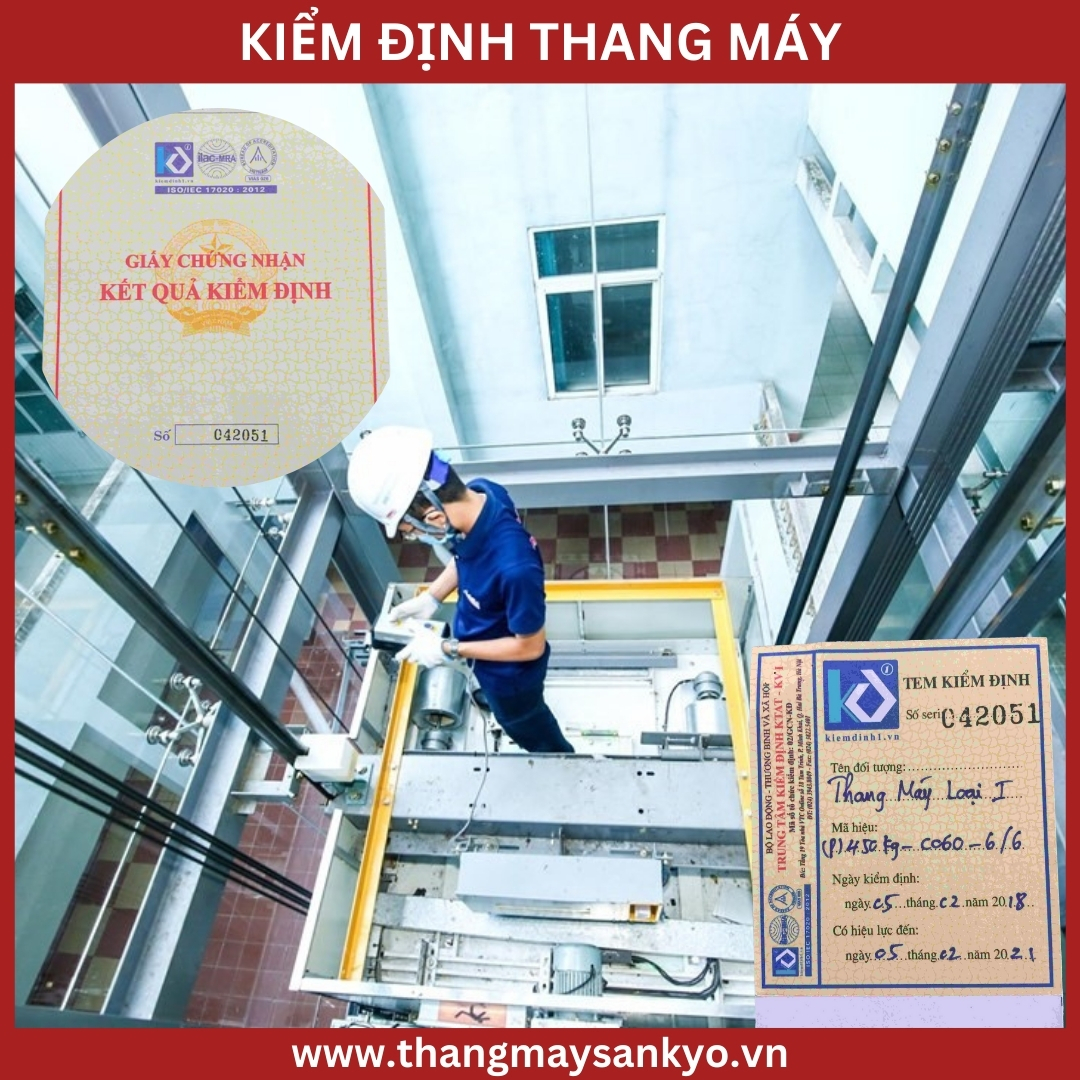
In this context, SANKYO Elevator will present regulations related to elevator inspection deadlines and 5 important points to note when inspecting elevators that every elevator user needs to understand.
SEE MORE OTHER PRODUCTS:
WHY MUST INSPECT THE ELEVATOR
Elevator inspection not only aims to ensure safety during operation but also brings many important benefits:
Increase labor efficiency: Ensuring the elevator operates stably helps increase labor productivity, because working time is not interrupted by technical problems.
Reduce compensation costs: Elevator safety inspection helpsminimize the risk of occupational accidents, thereby reducing compensation costs and legal consequences that businesses may face.
Ensuring safety for people and goods: The elevator inspection processensures the elevator safely transports both people and goods, preventing incidents that may occur during travel.
Important legal evidence: Elevator inspectionisa necessary legal evidence, not only providing proof of compliance with safety regulations but also supporting insurance units and customers in the process. device safety assessment and validation process.
Compliance with labor safety laws: Carrying out elevator inspectioniscompliance with legal regulations related to equipment use, especially when there are strict requirements on labor safety. .
.jpg)
In short, elevator inspection is not only a measure to ensure safety but also brings many benefits in terms of labor efficiency, reducing costs and increasing legal reputation for businesses.
REGULATIONS ON ELEVATOR INSPECTION
Pursuant to Article 9 of Circular 12/2021/TT- BLDTBXH dated September 30, 2021 of the Minister of Labor, War Invalids and Social Affairs stipulating the deadline for technical inspection of elevator safety as follows:
- The period of periodic safety technical inspection for elevators installed in apartment buildings, offices, shopping centers, hospitals, hotels, manufacturing plants or in public areas is two (02) once a year.
Period of periodic safety technical inspection for elevators installed in projects other than those installed in apartment buildings, offices, shopping centers, hospitals, hotels, factories production or in public areas every three (03) years.
- The period of periodic safety technical inspection for elevators that have been used for more than 15 years is once every one (01) year.
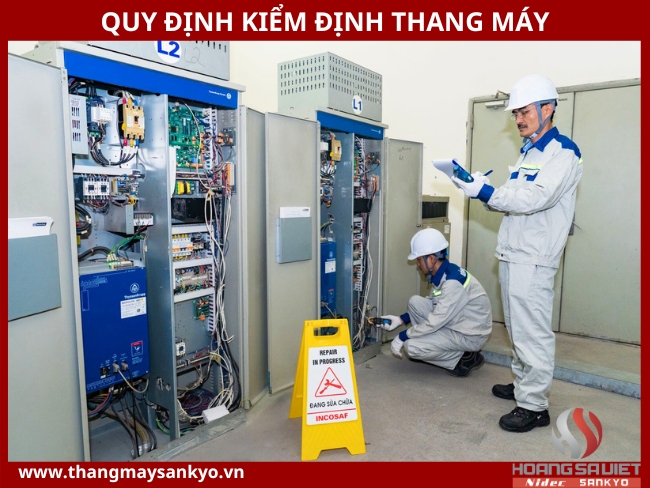
Note: Depending on the status of the equipment, the technical safety inspection deadline may be adjusted short-term due to the decision of the inspector, which is carried out based on consensus with the organization or individual in charge. Own or manage elevators. In case of shortening the technical safety inspection period, the inspector must detail and clearly state the reason for the shortening in the inspection record.
Because the home elevator is about to be inspected in November 2023, according to the provisions of Clause 2, Article 9 of Circular 12/2021/TT-BLDTBXH , the elevator at this project needs to be inspected. periodic safety technical regulations, specifically once every three (03) years.
For your home elevator, if this elevator has been in use for more than 15 years, the periodic safety technical inspection period is determined to be one (01) time per year.
SEE MORE OTHER PRODUCTS:
FORMS OF ELEVATOR INSPECTION
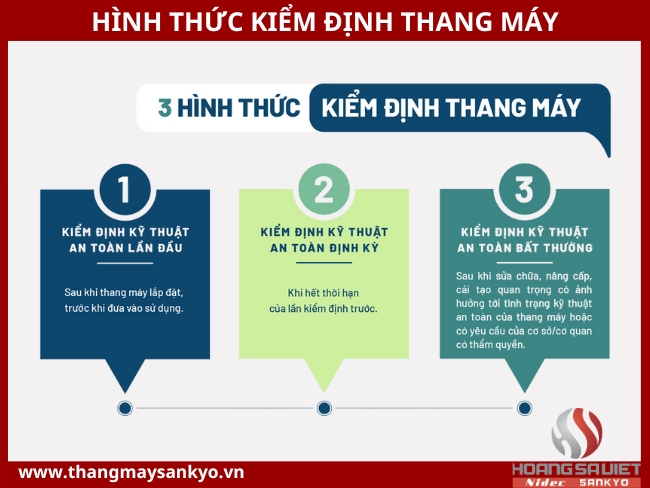
TIMELINE FOR PERIODIC ELEVATOR INSPECTION ACCORDING TO PERIOD OF ELEVATOR USE
Periodic elevator inspection time has been detailed in Circular 54/2016/TT-BLDTBXH and depends on the specific usage period of the elevator. Below is a summary of elevator inspection intervalsdepending on the period of use:
Regular (less than 10 years): Elevators are periodically inspected every 3 years to ensure that they continuously meet safety and technical standards. This means the elevator will undergo a full assessment to ensure safe and efficient operation throughout that period.
10 - 20 years: Electric elevators that have been in service for more than 10 years will be placed in a periodic inspection program with a period of 02 years. In the case of elevators that have been in operation for more than 20 years, the inspection period is shortened to 1 year. This highlights the importance of carrying out intense testing on older elevators, to ensure their safety and performance.
According to national technical standards: If the elevator inspection deadlineis determined in national technical standards, the inspection process will be conducted in accordance with the provisions of that standard.
Requirements of the manufacturer or user: If the manufacturer or facility requires a shorter inspection period for the elevator than the general regulations, the inspection process will be carried out according to the specific requirements. that body.
Shorten the elevator inspection time limit: During the process of shortening the inspection time limit, the inspector needs to detail and clearly state the reason in the inspection record. This action is intended to ensure the transparency and reliability of the accreditation process.

Elevator inspection intervals play an important role in ensuring the safety and performance of the equipment. This not only enhances users' confidence when enjoying elevator services in buildings and structures, but also protects them from risky situations that can occur due to improper equipment. properly inspected.
SEE MORE OTHER PRODUCTS:
UPDATE CURRENT ELEVATOR INSPECTION PRICE
According to Circular 41/2016/TT-BLDTBXH dated November 11, 2016 of the Minister of Labor, War Invalids and Social Affairs , elevator inspection costs are prescribed as follows:
- Elevator below 10 floors: 2,000,000 VND/device.
- Elevator from 10 floors to 20 floors: 3,000,000 VND/device.
- Elevator over 20 floors: 4,500,000 VND/device.
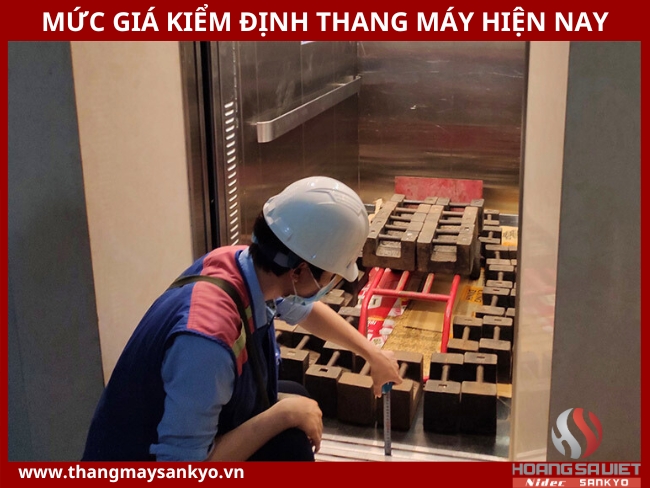
CASES NEEDING TECHNICAL SAFETY INSPECTION OF ELEVATORS
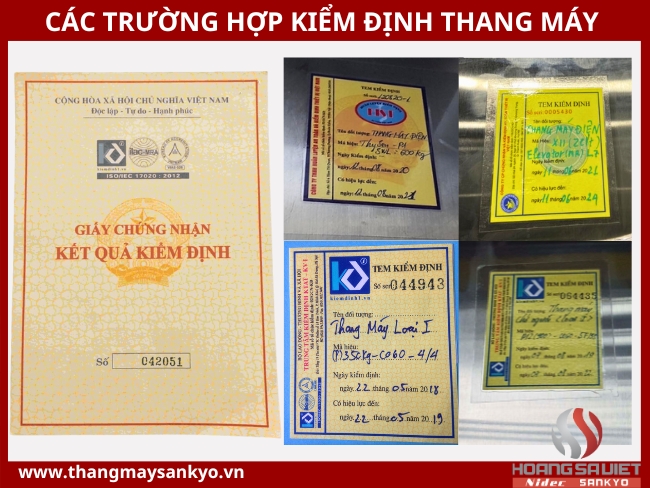
The technical safety inspection process for elevators plays an important role in ensuring that the equipment operates properly and is safe for users. Below are specific situations when elevator inspection is needed :
1. Inspection after elevator installation
Once the elevator is installed, the initial inspection process is important to ensure that the equipment meets all safety and technical standards. This assessment is usually conducted under the supervision of inspection experts, ensuring every aspect of the elevator is examined and evaluated in detail.
2. Inspect the elevator periodically over time
Carrying out periodic elevator inspections over time is an important measure to monitor and evaluate the elevator's operating status over time. Normally, the period of periodic elevator inspection is determined according to the provisions of Circular 54/2016/TT-BLDTBXH . Performing these periodic elevator inspections not only helps prevent incidents but also ensures that the elevator continues to meet safety standards after each period of use.
3. Inspect elevators after repair, upgrade or as requested by authorities
Every time an elevator undergoes repair, upgrade or compliance with regulatory requirements, inspection becomes an important step to ensure that changes and improvements comply with standards. safety and technique. This process not only ensures that the elevator remains functional, but also prevents any risks that could endanger users.

Elevator inspection steps in these cases focus not only on ensuring safety but also on evaluating performance and compliance with technical regulations. This action not only helps protect lives and property but also maintains a positive image of the brand and reputation of the organization that owns the elevator.
SEE MORE OTHER PRODUCTS:
ELEVATOR INSPECTION PROCESS
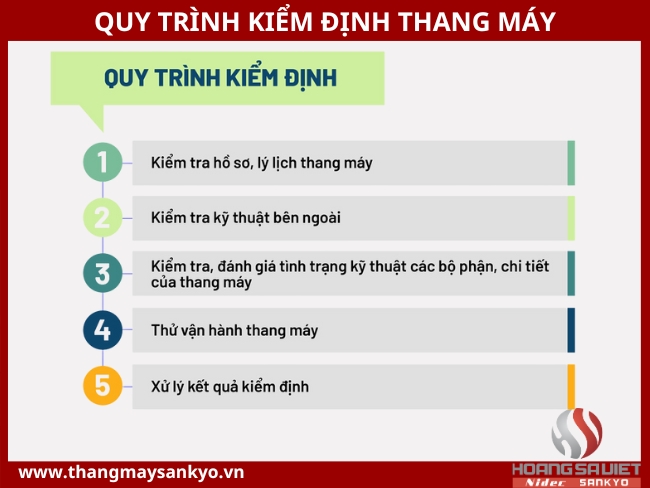
IMPORTANT NOTES WHEN INSPECTING ELEVATORS
Elevator inspection is not only a legal obligation, but also plays an important role in ensuring the safety and performance of the equipment. Here are 5 important things to pay attention to when inspecting an elevator :
1. Legal obligations and List of Machines and Equipment
Elevator inspection is a legal responsibility according to State regulations, especially in the list of machines and equipment with strict requirements on labor safety, including elevators. Circular 36/2019/TT-BLDTBXH stipulates this list, emphasizing the importance of inspection to ensure elevator compliance with safety and technical standards.
2. Standards and Technical Regulations
Technical standards and regulations such as QCVN 02:2011, QCVN 26:2016, TCVN 6395:2008 are the basis for evaluating the safety and performance of elevators. Requirements for construction, installation and safety conditions are specified in these standards, and inspection against them helps ensure safe and efficient operation of elevators.
3. Periodic inspection period
The period of periodic elevator inspection is not only a regulation but also determines the safety and reliability of the equipment. According to Circular 54/2016/TT-BLDTBXH , the inspection period is determined based on the period of use. Performing timely inspections helps prevent problems and ensures the elevator operates properly.
4. Inspection costs
Elevator inspection costs are not only an investment in safety but also a strategy to minimize future risks and costs. The level of inspection costs, regulated according to Circular 41/2016/TT-BLDTBXH , depends on the type of elevator, quantity, location and specific requirements of the customer.
5. Consequences and penalties for non-inspection
Ignoring the verification process can cause many dangerous consequences for users. The quality of elevator operations is not guaranteed, life-threatening incidents may occur. In addition, according to the provisions of Circular 41/2016/TT-BLDTBXH , failure to carry out inspection may be sanctioned, with the level of fine depending on the level of violation.
.jpg)
The elevator inspection process not only ensures legal compliance, but is also an important measure to keep elevators operating safely and efficiently over the long term. Mastering regulations, complying with technical standards and investing properly in inspection costs are the keys to maintaining a safe and reliable elevator system.
In an increasingly developing social context, elevator safety and quality play an undeniable role in daily life. Understanding the regulations on elevator inspection deadlines and important notes not only keeps our working and living environment safe but also positively contributes to prosperity and development. sustainable development of the community. SANKYO Elevator wishes to share and support people in taking the necessary measures, thereby ensuring that using elevators is not only safe but also brings trust and peace of mind.
11111111111111111111111
“Hoang Sa Viet Elevator - Always with you on every high floor!”
HOANG SA VIET ELEVATOR - LEADING PRESTIGIOUS ELEVATOR COMPANY IN VIETNAM
Consulting Specialist: 0942.222.075 Head Office: 184/20 Le Dinh Can, Tan Tao Ward, City. HCM Hanoi headquarters: No. 229, D. Van Tri, Van Noi, Dong Anh, Hanoi Website: thangmaysankyo.vn Email: hungpham@hoangsaviet.com



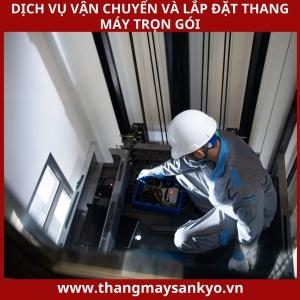
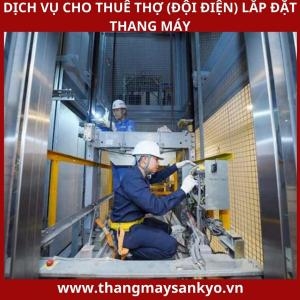
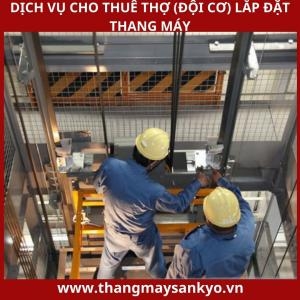

.png)
.png)

.png)












